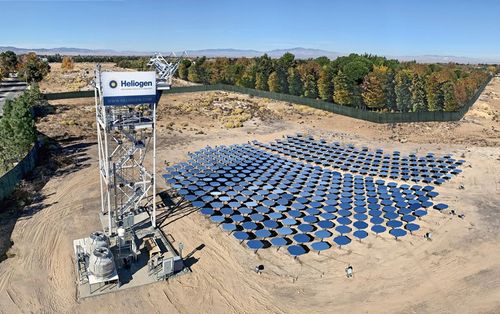With the election of Donald Trump for another term as president of the United States, the clean fuels industry will undergo enormous uncertainty during the upcoming transition period and as the second Trump administration gets underway in early 2025.
The U.S. clean fuels sector was already experiencing a high degree of unpredictability and near-zero investment due to in-progress changes in policy and a lack of guidance from federal agencies.
To name a few: a $1bn demand-side incentive program for clean hydrogen has not been finalized; final guidance for 45V clean hydrogen tax credits has not been issued; 45Z tax credits for clean fuels including SAF have not received draft guidance, only last through 2027, and represent a change from a blenders tax credit to a producers tax credit; the EPA is late in issuing renewable volume obligations for 2026 – 2028; CARB is making changes to California’s LCFS; and Washington and Oregon are both considering changes to their LCFS programs.
Michael Wojciechowski, Commercial and Compliance Director at Montana Renewables – one of only a small handful of companies that are actually producing SAF – said during a recent panel discussion that he believed the 2024 – 2025 period would be one of the most confusing and uncertain environmental attribute transitions that the U.S. industry has ever faced.
And that was before Trump was re-elected.
Now, everything from tax credits for hydrogen and clean fuels to a return of small refinery exemptions impacting RINs prices could be in flux during a second Trump term.
“If the new congress takes aim at the IRA I would think that there is some level of bipartisan support for the CCUS provisions given the traditional oil & gas companies support it,” a senior investment manager said. “I am less confident that hydrogen survives given excess demand for electricity and the complete absence of any real momentum on hydrogen.”
He added that, at a minimum, the small refinery exemptions that have been limited under the Biden administration would come back under Trump, which would have a negative impact on RINs prices through the federal renewable fuel standard. (In an 11th-hour move during the first Trump administration, Sinclair, an independent oil refiner, was granted exemptions for three refineries – exemptions later overturned by the Biden EPA, with that EPA decision later vacated by a U.S. Court of Appeals.)
On the other hand, the hydrogen hubs established under the Bipartisan Infrastructure Law as well as provisions supporting domestic manufacturing facilities are likely safer due to their locations in Republican and swing states.
Under a Trump administration, “The highest risk is for electric vehicle, hydrogen, residential solar, and storage,” equity analysts from Jefferies wrote in a note today. “We expect nuclear, solar, and wind tax credits to be more durable but additional concentration in Republican power will test the limits of the IRA.”
Much of the policy outcomes from the coming Trump presidency will depend on specific cabinet choices, and whether or not the incoming administration establishes managing the federal budget deficit as a priority, the investment manager noted.
Scott Bessett, considered a candidate for Secretary of Treasury, said today in an interview with CNBC that he would do whatever Trump asks him to do. As a reminder, Trump has referred to the IRA as the “Green New Scam” and said he would scrap it. Still, in the interview, Bessett conceded that Trump might not do everything he said on the campaign trial.
Would a Trump presidency defenestrate 45V tax credits considering ExxonMobil says it requires them for its Baytown blue hydrogen project to be viable? Perhaps these tax credits will merely be watered down, rankling environmentalists. Would a Trump presidency scrap provisions supporting electric vehicles considering the vocal support he received from Elon Musk, the CEO of Tesla?
Nobody knows. In the meantime, the chilling effect on investment from the election overhang is likely to persist.
“Lots of risk,” the investment manager added. “We will learn a lot in the next several months.”





